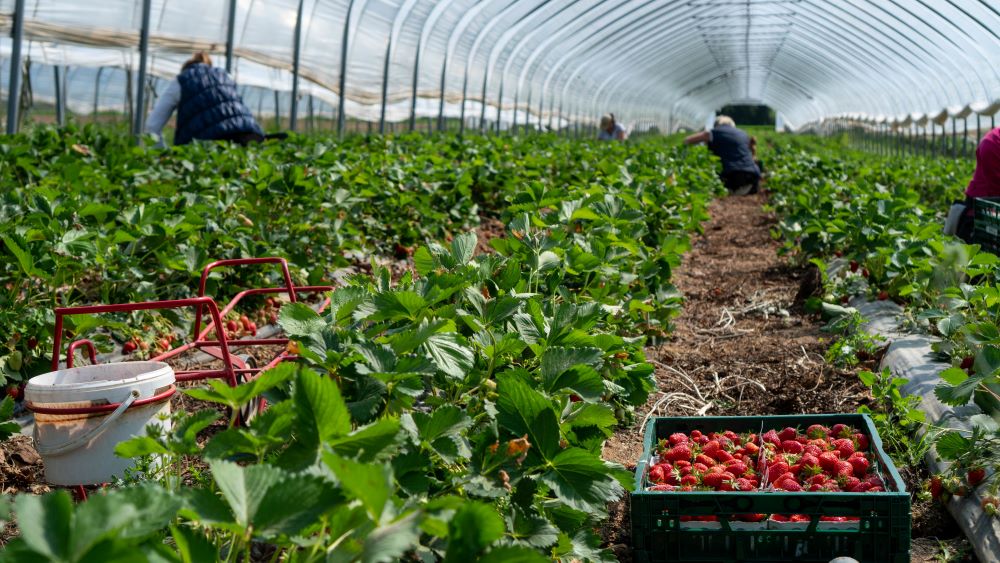
Food production in the UK could shrink permanently as a result of post-Brexit labour shortages, a select committee has warned.
A report from the Commons Environment, Food and Rural Affairs (EFRA) committee says food and farming sectors face “permanent damage if a failure to address its acute labour shortages leads to wage rises, price increases, reduced competitiveness and, ultimately, food production being exported abroad”.
The FT reports the committee finds the mitigations by ministers to have been “too little, too late”, with lack of butchers leading to the mass cull of pigs and crops unpicked in fields.
Recommendations
A key recommendation from the report is that a pilot scheme for admitting seasonal overseas workers for harvesting should be made permanent and expanded to 40,000 visas this year from 30,000.
It also calls for the skilled workers visa scheme – which admits people under the post-Brexit points-based system – to be reviewed to address costs and complexity, including the English language requirement.
‘Extraordinary situation’
Committee chair Neil Parish called the government’s attitude to the plight of food and farming workers “disappointing”.
“In 2021, farmers faced an extraordinary situation – crops were left to rot in the fields and healthy pigs were culled due to a lack of workers,” he told the Grocer. “This has serious implications for the wellbeing of the people who put food on our tables today and in the future.”
Long-term strategy needed
Jayne Almond, director of policy and corporate affairs at the Food and Drink Federation (FDF), said systemic labour shortages were compounding the inflationary pressures on UK food and drink manufacturers, reports Just Food.
She called for a “long-term strategy on labour and technology that helps us to attract, retrain and upskill our workforce and which supports smaller businesses to invest”.
The report reinforces ONS findings that the food sector ha ben hit hardest by rising energy prices and supply chain costs, as covered in yesterday’s IOE&IT Daily Update.
Families struggling
The Standard also reports Iceland boss Richard Walker saying that there is “no buffer” for struggling families as the war in Ukraine causes food prices to soar, on top of energy, National Insurance and council tax increases.
The latest figures show food inflation has risen by 5.3% year-on-year – following several months of price hikes.
ONS figures show 58% of food and drink businesses reported passing on price rises to customers last month.
China issues
In China, farmers are struggling with food production due to the country’s strict Covid lockdowns, reports the FT.
As many as a third of farmers in the northeast provinces of Jilin, Liaoning and Heilongjiang lack fertiliser, labour and seeds due to pandemic measure. The provinces grow more than 20% of China’s grain.
The government has apologised for food shortages in the Changchun, the capital of Jilin, reports Reuters.



